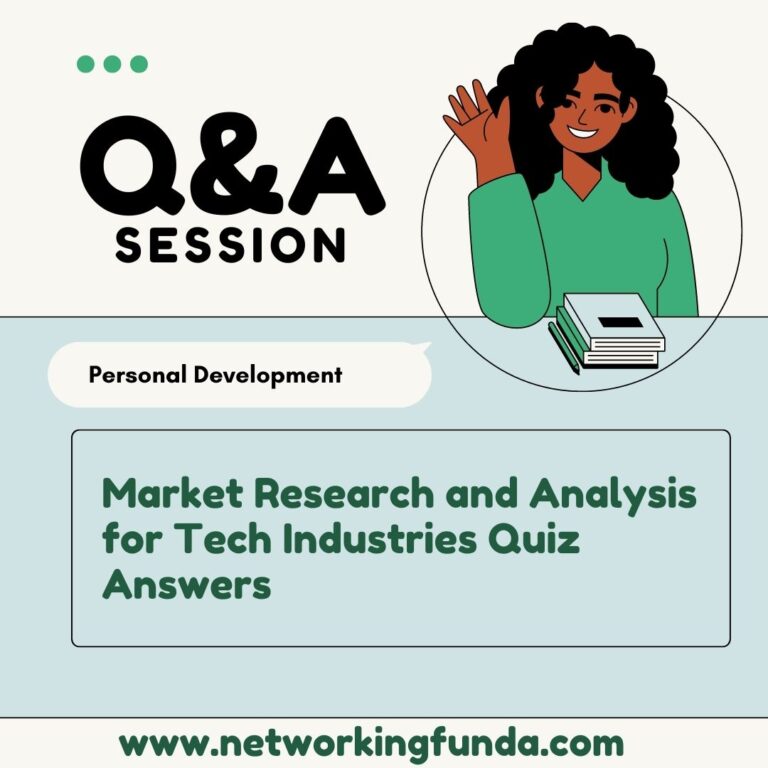Table of Contents
Get All Weeks Forecasting Skills: See the Future Before it Happens Quiz Answers
Week 01: Forecasting Skills: See the Future Before it Happens Quiz Answers
Quiz 1: Future Forecasting Essentials
Q1. What’s the best definition for a future forecast?
[expand title=View Answer] A prediction of what will most likely happen in the future, based on probability, statistics and simulations.[/expand]
.
Q2. Futurist Bob Johansen has a three-word philosophy that sums up the purpose and methods of future forecasting. He uses it in his daily personal life, and not just at work, to practice the skills of arriving before the masses and giving yourself enough time to think more clearly and respond to surprising challenges. What is this three-word philosophy?
[expand title=View Answer]Get there early [/expand]
Q3. Institute for the Future uses a three-step methodology that Bob Johansen explains in his mini-masterclass video and in the reading this week.
The first step of the methodology, or cycle, is to anticipate what might be different in the future. What is the name of this step?
[expand title=View Answer] Forecast [/expand]
Q4. The second step of the Institute for the Future methodology is to make sense of the possible changes and imagine what you might do to prepare for and take advantage of those changes, or to slow them down and prevent them. What is the name of this step?
[expand title=View Answer] Perspectives[/expand]
Q5. The third step in the Institute for the Future methodology is to start trying new things, today, that let you experiment with possible strategies for the future. What is the name of this step in the cycle?
[expand title=View Answer] Prototyping[/expand]
Quiz 2: Blockchain basics
Q1. Professional futurists often talk about “drivers of change” when making future forecasts. What’s a driver of change?
[expand title=View Answer] A major new technology, global trend or phenomenon that is likely to have a big influence on what the future will be.[/expand]
Q2. What’s the best way to describe what Blockchain technology is?
[expand title=View Answer]A decentralized system of record-keeping, protected by cryptography, that creates trust because everyone connected to the system has a complete copy of the record, preventing individuals from faking data or altering the record [/expand]
Q3. The Blockchain forecast you read this week predicts that we will see three waves of innovation when it comes to blockchain over the next decade.
[expand title=View Answer] Commons: Important physical resources and infrastructure start to be managed by the crowd (ordinary people), instead of by the governments and corporations, when blockchain computing is connected to the Internet of Things[/expand]
What order are these 3 waves of innovation expected to occur in?
[expand title=View Answer] Currencies, Computing, Commons [/expand]
Q4. Blockchain is an exciting but complicated driver of change. What jumps out at you this from this week’s video or reading as being personally of interest to YOU about blockchain? Is there a particular use for Blockchain, or a signal in the report, or scenario that feels personally important to YOUR work or YOUR life? Or is there one thing you’d like to learn more about the Blockchain, based on what you learned this week?
There is no right or wrong answer here – whatever you share will count as a correct response! Use this question as a chance to reflect on what you’ve learned this week and make a personal connection to the material.
[expand title=View Answer] Answer to be provided by the learner[/expand]
Week 2: Forecasting Skills: See the Future Before it Happens Quiz Answers
Quiz 1: Which forecast would impact you the most?
Q1. This week, you watched two demonstration videos of how to turn signals and drivers into forecasts. Which of the two demonstrated forecasts do you think would impact you the most if it came true? (There is no right or wrong answer to this question. It’s just an opportunity for you to reflect on what you learned this week!)
[expand title=View Answer] Go team! Professional sports allow fans to buy power-ups for their favorite athletes and teams through physical activity[/expand]
Week 3: Forecasting Skills: See the Future Before it Happens Quiz Answers
Quiz 1: The Future of Machines
Q1. In this week’s readings, you encountered three new scenarios about the future of machines.
In the scenario “Machines as Consumers”, what is different about this future?
[expand title=View Answer] Instead of deciding what to buy for themselves, most people let artificially intelligent “personal assistants” do their shopping for them. [/expand]
Q2. In the scenario “Machines as Criminals”, what’s different in this future?
[expand title=View Answer] It proves impossible to teach ethical decision-making to robots and AI. As a result, most “smart” machines behave in ways that are criminal or in violation of human values, and the production of “bad” machines is banned. [/expand]
Q3. In the scenario “Machines as Conscience”, what is different in this future?
[expand title=View Answer] A new AI called the “Digital Consequence Awareness System” helps people understand the ripple effects and long-term consequences of their actions, so they can behave more ethically. [/expand]
Q4. Of these 3 scenarios, which one do you personally think is the most thought-provoking and important to consider? There is no right or wrong answer to this question; use it as an opportunity to reflect on what you’ve read this week. (Whatever answer you pick will be marked correct!)
[expand title=View Answer] Machines as Conscience [/expand]
Get All Course Quiz Answers of Futures Thinking Specialization
Simulation Skills: This is Your Brain on the Future Coursera Quiz Answers
Adaptability and Resiliency Coursera Quiz Answers

